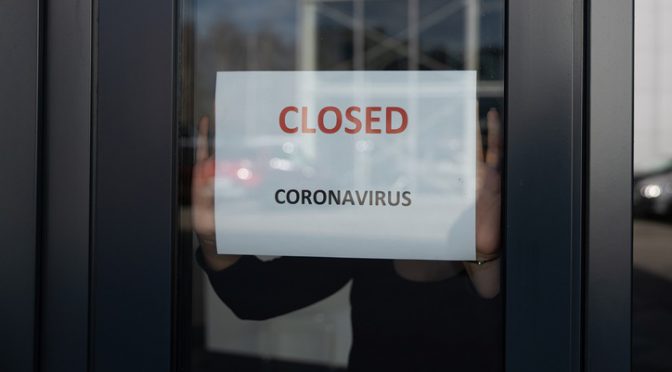Editor’s Note: This post was originally published by The Education Trust. See the original article.
Amid increased anxiety over a global pandemic, parents and students alike are frantically adjusting to the new reality of school shutdowns, online learning, cancellation of standardized tests, library closings, the postponement of extracurricular activities, and limited travel. Meanwhile, there is a group of students that is eagerly awaiting college admission for fall 2020. How will the COVID-19 pandemic impact the college-going decisions of students, and how should colleges adjust admission criteria accordingly?
In a previous Ed Trust blog, I argued that institutions should, as the Supreme Court currently allows, use race as a factor in college admission, since the measures that most colleges use in their admission criteria (strength of curriculum, standardized test scores, grade point average, and non-academic factors) disadvantage students from low-income backgrounds and students of color. Given the COVID-19 pandemic, the reality is that these same students will likely be disadvantaged by the factors that colleges and universities value in admission.
The closest comparison of a national emergency in modern times is Sept. 11, where we can draw upon the lessons of college enrollment afterward. Some research found that student decision-making was not impacted by the 9/11 attack, but that the economic slowdown that occurred after the attack was a bigger factor in student choice. Given the impact on the economy that the COVID-19 pandemic is likely to have, we are likely to see similar changes to student college choice and factors that colleges value in admission.
As standardized test dates are canceled, institutions should move away from the significant weight that these tests have and place greater weight on grade point average (GPA) and strength of schedule based on the high school context for admission (e.g., Did the student take the highest level of math offered by their school or were their additional courses?).
Also, as schools close or move to an online platform, how will students’ grades be impacted? Some research has shown that online learning reduces student success and lowers a student’s GPA. Given this, institutions should carefully consider students’ GPAs prior to and after, if online learning was implemented, the disruption of their learning.
Additional factors that colleges consider are the use of in-person interviews, alumni interviews, and campus visits as signs of interest. However, travel restrictions, limited public transportation (for those dependent on it), and campus closures are limiting students’ ability to visit campuses and participate in interviews. And social distancing will likely change how students experience college visits and interviews both this fall and next. Virtual tours and/or alternative contact opportunities should be implemented, so long as they do not disadvantage students in impacted areas or those who do not have the resources to travel. Consideration should be given to students unable to fully participate in web-based programming; a full 10 percent of adults in the United States do not have online access, with significant differences by race and income.
Colleges also closely consider participation in extracurricular activities in the application process. This too needs to be closely scrutinized. Students will be impacted as many of these activities will be canceled out of necessary precautions. How might this disproportionately impact students of color and students from low-income backgrounds as financial resources may also play a factor in a student’s ability to continue participating or engaging in activities that are not school-related?
Finally, while the financial implications of the COVID-19 outbreak on students’ and families’ finances has yet to bear out, we can assume that it will likely have a negative impact. Currently, the Free Application for Federal Student Aid (FAFSA) uses income information from two years prior (fall 2020 uses tax information from 2018). The closure of businesses and slowdown in travel and purchasing nationally is having a profound effect on those impacted by business closures, as well as those dependent on hourly employment. Colleges should request updated financial information from students and families and adjust a student’s financial aid offer as this crisis continues to develop. Additionally, deposit and application fees will likely impact students from low- to middle-income backgrounds more severely and limit choice. Colleges should offer more application fee and deposit waivers in consideration of families’ changing financial realities. Additionally, colleges should invest more in need-based student aid; and at the federal level, Congress should invest more in the Pell Grant to ensure student access to postsecondary education is not impeded.
While we’ve yet to experience anything like this in a generation, let’s try to ensure that America’s next generation is set up for success.
 Wil Del Pilar is the vice president of higher education policy and practice with The Education Trust (DC). Prior to joining Ed Trust, Del Pilar served in Pennsylvania Governor Tom Wolf’s administration as deputy secretary of postsecondary and higher education. He also previously worked as an admission counselor at Chapman University (CA) and the University of California Santa Cruz, and as a financial aid counselor at Loyola Marymount University (CA).
Wil Del Pilar is the vice president of higher education policy and practice with The Education Trust (DC). Prior to joining Ed Trust, Del Pilar served in Pennsylvania Governor Tom Wolf’s administration as deputy secretary of postsecondary and higher education. He also previously worked as an admission counselor at Chapman University (CA) and the University of California Santa Cruz, and as a financial aid counselor at Loyola Marymount University (CA).


One thought on “Thoughts from a Former College Admission Officer in the COVID-19 Era”
Comments are closed.